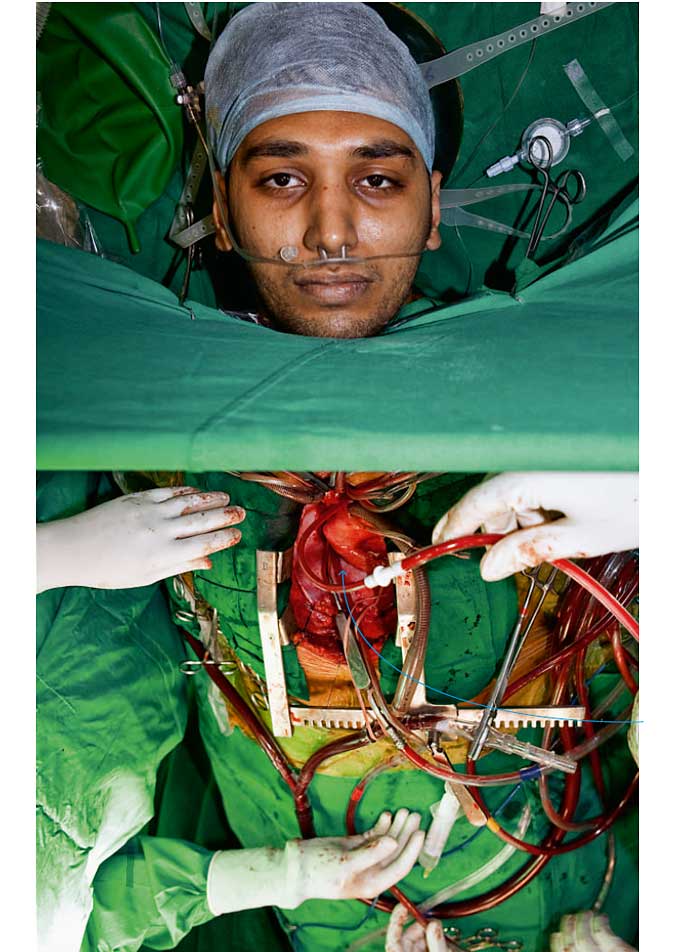September 29th, 2011 by MellanieTrueHills in Health Tips
No Comments »

September is Atrial Fibrillation Awareness Month. Lots of folks don’t know too much about the condition, which is an irregular heart beat that can lead to serious complications such as dementia, heart failure, stroke or even death. To help spread the word, StopAfib.org presents these 10 afib facts and figures that will probably surprise even
some healthcare professionals:
- Afib affects lots of people. Currently up to 5.1 million people are affected by afib. And that’s just in America. By 2050, the number of people in the United States with afib may increase to as much as 15.9 million. About 350,000 hospitalizations a year in the U.S. are attributed to afib. In addition, people over the age of 40 have a one in four chance of developing afib in their lifetime.
- Afib is a leading cause of strokes. Nearly 35 percent of all afib patients will have a stroke at some time. In addition to leaving sufferers feeling weak, tired or even incapacitated, afib can allow blood to pool in the atria, creating blood clots, which may move throughout the body, causing a stroke. To make matters worse, Read more »
*This blog post was originally published at Atrial Fibrillation Blog*
September 22nd, 2010 by DrWes in Better Health Network, Health Policy, News, Opinion
No Comments »

With patients having to pay more of what’s charged for their healthcare, comparisons between medical systems like this one in Pennsylvania make us wonder if bigger necessarily means better. From the Times-Tribune:
The Pennsylvania Health Care Cost Containment Council study looked at four regional hospitals that offer cardiac surgery: Geisinger Wyoming Valley, Plains Twp.; Community Medical Center and Mercy Hospital, Scranton; and Pocono Medical Center, East Stroudsburg.
Among the four, Geisinger Wyoming Valley carries the biggest price tag. In 2008, the average hospital charge for a coronary artery bypass graft surgery was $108,029 and the average hospital charge for valve surgery was $132,740, according to information in the report. Read more »
*This blog post was originally published at Dr. Wes*
January 29th, 2010 by DrWes in Better Health Network, News
1 Comment »


Swaroup Anand, 23, from Bangalore, is fully conscious as he undergoes open-heart surgery. An epidural to the neck, administered at the city’s Wockhardt Hospital, has numbed his body. Dr Vivek Jawali pioneered the technique ten years ago and has recently released a tutorial on DVD which gives a step-by-step guide to the procedure – sorry, but you can only get a copy if you’re a surgeon or an anaesthetist.
Seems there would be considerable risk of respiratory compromise is the epidural went too high. But according to this video, over 400 cases have been performed, including a bypass with aortic valve replacement!
I don’t know… I’m not sure I could stomach the sound of the bone saw or, worse, if the surgeon said “Oh, crap…”
h/t: Slashdot
Reference:
Chakravarthy MR, Jawali V, Patil TA, Srinivasan KN, Manohar M, Khan J, Jayaprakash K, Das JK, Mahajan V. “High thoracic epidural anaesthesia as the sole anaesthetic technique for minimally invasive direct coronary artery bypass in a high-risk patient.” Ann Card Anaesth. 2003 Jan;6(1):62-4.Musings of a cardiologist and cardiac electrophysiologist.
*This blog post was originally published at Dr. Wes*













